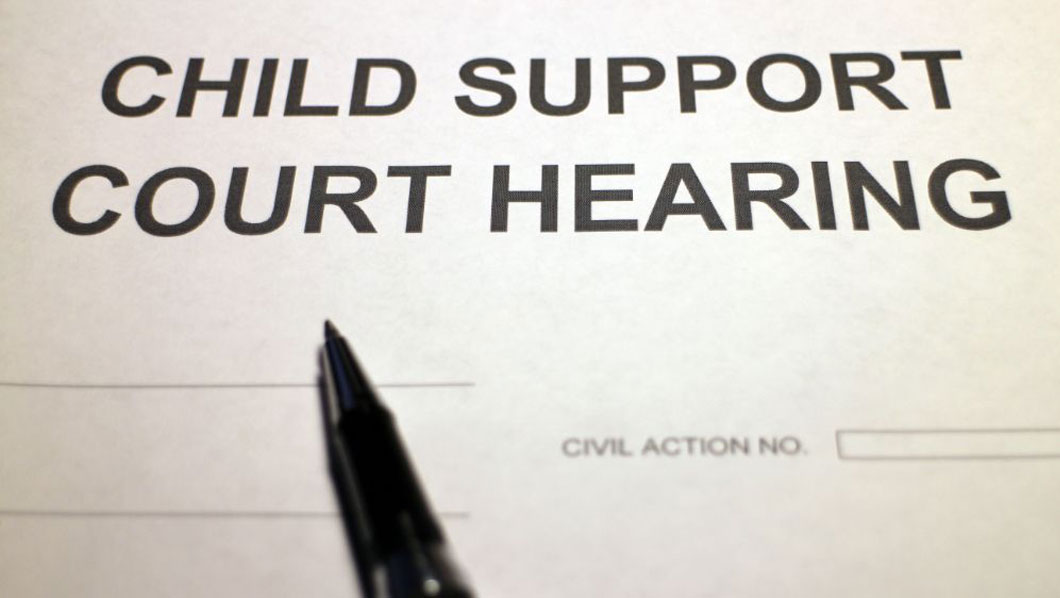Corona California Child Support Attorney
Corona Child Support Attorney
After a divorce, parents who are separated are still responsible for financially supporting their children. California law declares that children have a right to be financially cared for by their parents and that both parents are equally responsible for supporting their children.
In nearly all child custody cases, one parent will be deemed responsible for making payments to the other in the form of child support. Typically, the parent making the payments is the non-custodial parent or the parent who does not live with and care for the child the majority of the time.

How Is the Payment Amount of Child Support Case Determined?
In California, the payment amount of child support is largely dependent on the state’s guidelines. California has a complex mathematical formula that determines the monetary amount for child support payments through a variety of factors, including:
- The parent’s current monthly earnings. A parent’s income can include their salary, military benefits, unemployment, or social security benefits. In addition, lottery winnings and alimony payments can also count as income. In some instances, income that a parent has the willingness and ability to earn may also be considered in payment calculations.
- The parent’s tax filing status.
- The number of children both parents have together.
- How much time each parent spends with the children, determined by either a custody agreement or a visitation timeshare.
- Child support payments for children from any other relationship.
- Health insurance expenses and premiums paid by either parent.
- Mandatory union dues paid by either parent.
- Mandatory retirement contributions paid by either parent.
Additional Factors
Occasionally, additional factors can add on to the amount of child support payments, including:
- Childcare costs that are necessary due to employment or when engaging in education or training for employment.
- Expenses acquired while traveling for visitation between parents.
- Any expenses related to the child’s education.
- Expenses accrued from a child’s special needs.
Generally, both parents will split any of the above additional factors evenly. However, if one parent makes significantly more income than the other, it is not uncommon for them to be required to pay a higher percentage of costs. For example, if your ex makes significantly more money than you, they may be ordered by the court to pay for more of the daycare expenses accrued while both of you are at work.
How Long Does California Child Support Last?
Child support payments usually cease when the child turns 18. However, there have been instances where support payments continued through the age of 19 if the child was still living with a parent or attending high school.
Support payments may extend longer if the child is unable to be self-supporting, in the case of a disability, or if both parents agree to a longer payment period.
If a child becomes self-supporting, the period of time child support payments have been ordered can be shortened. This can happen if the child can financially provide for themselves, joins the military, marries, or enters into a domestic partnership. If the child passes away, the parent is no longer required to make child support payments.
How Often Is Child Support Paid?
In the state of California, child support is typically paid monthly. In some special circumstances, child support may be paid in the agreed-upon amount of time in the child support court order.
How Do I Collect Child Support?
Once the child support payment order is confirmed by the court, the paying parent is required to provide funds through the state of California’s State Disbursement Unit (SDU). The SDU provides safe and cost-effective processing and disbursement of child support payments. Per federal law, the SDU is the processing system for all child support payments in the state of California. Your child support payments can be processed electronically through direct deposit to a checking or savings account through the SDU website.
The State Disbursement Unit website or local child support agency accepts most forms of payment. You can use credit cards, PayPal, cash, or your checking or savings account.
What Happens If I Don’t Pay Child Support?
Not paying child support has serious consequences. If a parent has the financial ability to pay support but is found to be intentionally withholding payment from the custodial parent, they can be found in contempt of court. Being found guilty of contempt of family court in California can result in a hefty fine, hours of community service, and in some cases, imprisonment.
If your ex refuses to pay child support or is consistently making late payments, our family law attorneys can help you file the paperwork needed to have their wages garnished. The child support payment will then come directly out of that parent’s paycheck.
Do I Still Have to Pay Child Support If I Move Out of State?
Yes. A federal law called the Uniform Interstate Family Support Act (UIFSA) requires the non-custodial parent to continue to make child support payments no matter what state they move to or from. This is law in all 50 states, including California. The UIFSA also will enforce support orders even if the non-custodial parent already lives in another country or chooses to move outside of the United States.
The Uniform Interstate Family Support Act also requires any changes to custody or child support orders to take place in the original state if either parent or child that the order was intended to benefit still lives there. No other state may make modifications to the custody or child support order.
If the custodial parent and child who the court orders benefits for relocates to another state, it is possible to transfer the child support case to the new state of residence.
Do Stepparents Have to Pay Child Support?
In the state of California, there is no general law that requires a stepparent to contribute to child support payments. However, there are situations that can lead to a stepparent being liable for support payments for a stepchild. If a stepparent acts in place of the parent, also known as “in loco parentis,” they may be held accountable for child support. For this to happen, the stepparent would have to voluntarily choose to have taken on the same responsibilities that the child’s biological parent would typically have.
Are Fathers Able to Receive Child Support?
Yes. Child support payments under California law are unimpacted by the parent’s gender or sexual orientation. If you are the custodial parent, meaning that the child lives with and is cared for by you most of the time, you have a right to child support payments. The custodial parent’s gender does not impact their right to seek legal action against the non-custodial parent’s neglect to pay child support, as well.
Do Fathers Have to Pay Child Support Even If They Weren’t Married?
Yes, but only if a paternity test is confirmed. If the parents were never married, the father has no obligation or legal responsibility to pay child support until paternity of the child is established.
Paternity can be established at the time of birth by signing a Voluntary Declaration of Paternity form, which is most frequently done while at the hospital. If there is any doubt regarding the paternity of the child, proceed with caution. It is highly recommended that you do not sign any forms or assume any responsibility until a DNA test can confirm parentage.
How Can a Child Support Lawyer Help Me?
A child support attorney can help you navigate the complex legal system during, and after, a divorce. Once the amount of child support payment has been determined by the court, there are always instances and life changes that may justify a modification of the original amount.
Child support modification is typically granted when:
- There is a significant increase or decrease in the amount of visitation due to changes in the child’s custody orders.
- There has been a significant increase or decrease in the income of one or both parents.
- A significant change to support amount determining factors. One or both parents have a change of employment, and the cost of health insurance, union dues, or retirement contributions increased or decreased.
If you wish to seek modification to the amount of child support payments, it is essential that you contact an experienced Corona child support attorney. It is highly recommended that you do not try to negotiate child custody or child support payments on your own.
Corona Child Support Attorneys You Can Trust

Our family law attorneys can ensure that child support modifications and agreements are fair and your family is receiving what you deserve.
The Law Offices of Michelanne Hrubic know that experiencing a divorce is extremely stressful and emotional. Having to fight child custody issues, or pay child support, can further inflate the difficulty of this challenging situation. Our attorneys understand the complexity of family law matters. We are here to help you with your claim and are able to work with you in a clear, concise manner. Contact us today to schedule a consultation.
Contact Law Offices Of Michelanne Hrubic
How Can We Help You?
Fields Marked With An ” *” Are Required
"*" indicates required fields


